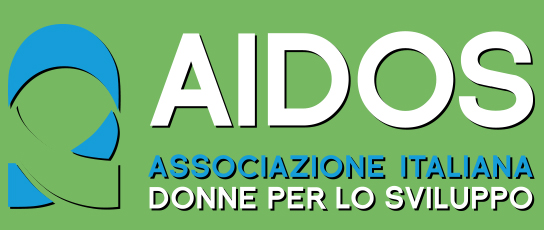Disability/Violence against women/Training WHERE JORDAN: Governorates of Mafraq and Amman. Some activities will be carried out in the governorate of Zarqa, which is however not a target area for the project PARTNERS AIDOS in partnership with Vento di Terra Onlus (VdT) and local organizations Arab Women Organization (AWO), Durrat al Manal for Development and Training (DMDT) BACKGROUND According to UNHCR data, Jordan hosts 674,268 officially registered Syrian refugees but, according to Jordanian government reports, they reach a total of 1.36 million. Only slightly more than 17% live in formal camps, while the vast majority are settled in Jordanian host communities. The highest concentration is in the Amman Governorate (29.7%), followed by Mafraq (25.2%) and Zarqa (14.6%). The influx of refugees has created new socio-economic pressures that, further exacerbated by the COVID-19 emergency, have worsened the Jordanian government’s ability to guarantee basic services. An increasing percentage of Jordanian citizens and refugees lives below the poverty line. Women who have suffered a loss of employment and income opportunities are at risk of violence, as well as those who experience a specific vulnerability, such as women with disabilities and Syrian refugees. Survivors of domestic violence, sexual abuse and victims of early marriages are discouraged from seeking help and reporting abuse due to cultural and social stigma. The prevalence of honor killings has given rise to a system of protective detention: women and girls can be forcibly detained for reasons of family honor. A new shelter system for vulnerable women has been established by the Ministry of Social Development (MOSD) to replace administrative detention. Shelters provide protection, food, clothing, training and economic, psychological, and social support, health, cultural and legal services. These services are not always available, of high quality, multidisciplinary and they are not easily accessible to women and girls with disabilities. GOALS General objective
- Improving the quality of life of women with disabilities and/or at risk and/or survivors of gender-based violence (GBV) in the informal camps in Mafraq, in the shelters in Amman and Ruseifa, and in the city of Amman.
Specific objectives
- Ensure access of women with disabilities and/or at risk and/or survivors of GBV to an integrated system of specialized and quality health and social services and intra-community response mechanisms to their specific needs
- Address the socio-economic determinants of GBV by fostering women’s economic autonomy
- Improve the skills of the staff in CSOs and target shelters, to prevent and address GBV with a disability-inclusive approach.
The following activities will be carried out:
- integrated provision of social and health services: general health, sexual and reproductive health, case management of sexual and gender-based violence, referral of cases to specialized facilities, prevention and treatment services, psychosocial service including drama therapy
- self-reliance activities: training workshops – tailoring, hairdressing, horticulture, aesthetics etc – to provide marketable skills; start up kits and follow up for start-up of income-generating activities; purchase and distribution of non-food items and hygiene materials
- capacity building of Jordanian CSOs and shelters and strengthening of intra-community mechanisms for inclusion and GBV prevention and protection: Technical assistance and training of the staff on disability and GBV and inclusion; adaptation of shelter protocol and guidelines on disability and gender-based violence; community information sessions on GBV/Disability prevention; training of women with disabilities for peer-to-peer counselling; rehabilitation works to improve the accessibility of the target shelters.
EXPECTED RESULTS
- improved integrated provision of inclusive psycho-social protection, rehabilitation, and health services for women with disabilities and/or at risk and/or GBV refugee survivors and host communities
- improved access to income-generating activities and distribution of dignity kits
- strengthened capacities of partner organizations, target shelters, Jordanian CSOs to prevent and address GBV with an inclusive approach and improved access to intra-community mechanisms to support women with disabilities and/or at risk and/or survivors of GBV
BENEFICIAIRES Direct beneficiaries
- Approximately 4,700 Jordanian(s) and Syrian refugee(s) with disabilities and/or at risk and/or survivors of GBV
- Approximately 60 shelters and CSOs staff will be trained on GBV and disability
Indirect beneficiaries
- Approximately 8,700 family members of women survivors of violence
- Approximately 15,000 people from the Jordanian and refugee community in Amman and Mafraq
MAIN AIDOS ACTIVITIES AIDOS will respond to the protection needs of women with disabilities and/or at risk and/or victims of GBV, hosted in the shelters in Amman and Ruseifa, and refugee women from the host community in Amman. In collaboration with the Higher Council for the rights of persons with disabilities (HCD), AIDOS will produce a chapter in the guidelines on how to deal with GBV against persons with disabilities in shelters, integrate disability the shelter protocol and provide technical assistance and training to shelter and OSC staff to improve their skills in identifying and managing cases of GBV against persons with disabilities. The project will adopt a gender-based approach. WHEN 15 mesi: 18/04/2023 – 19/07/2024 COST OF THE PROJECT € 998.700 WHO IS FINANCING THE PROJECT Italian Agency for Development Cooperation AICS (€ 994.576.00); AIDOS; VdT JORDAN – PROJECT FACTSHEET

